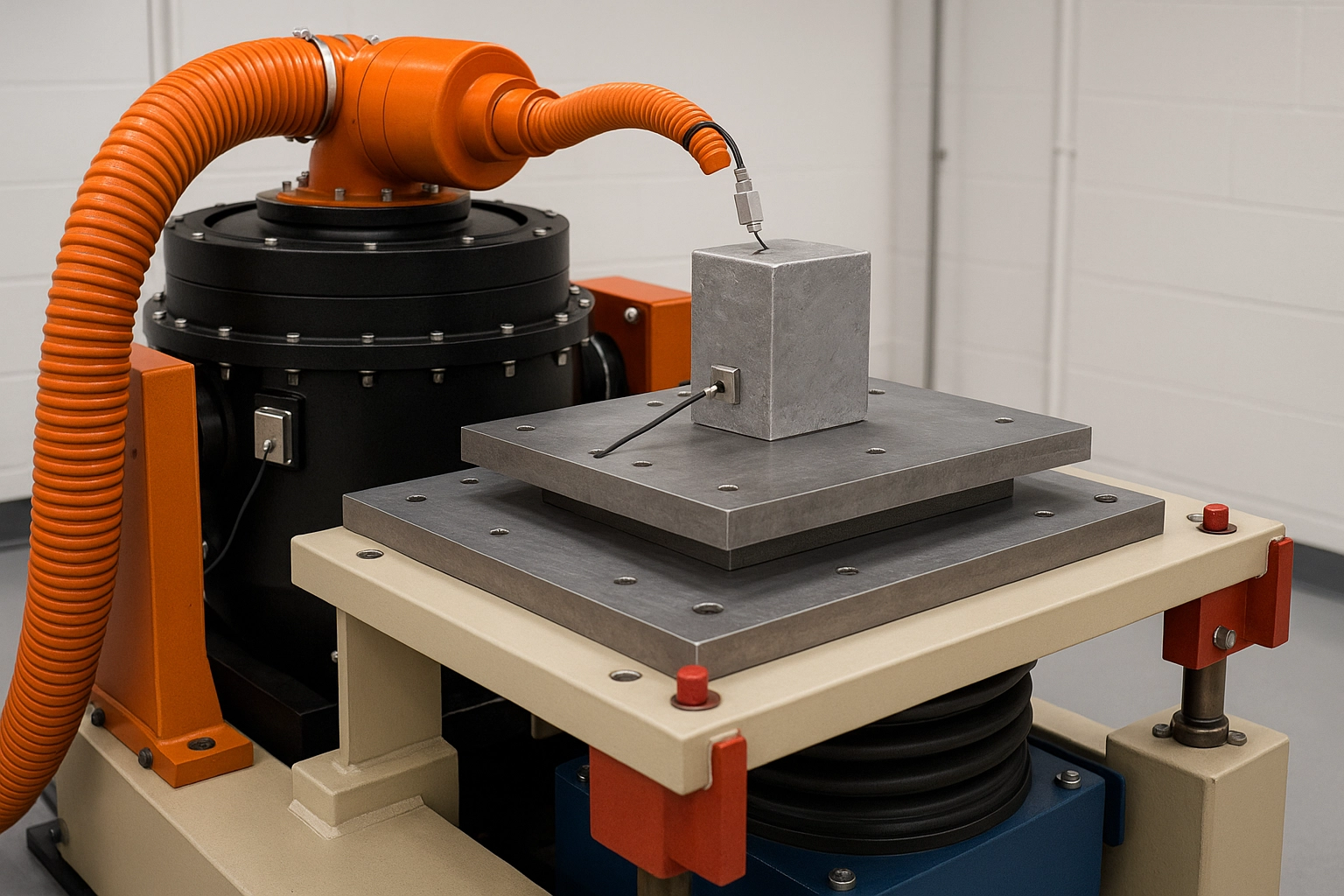Vibration & Mechanical Shock Testing
The automotive industry is highly regulated and safety-conscious. Vibration and mechanical shock testing are critical components of ensuring product integrity, reliability, and safety across various vehicle systems. This process involves subjecting materials, assemblies, or entire vehicles to controlled vibratory forces and mechanical shocks to evaluate their durability under simulated real-world conditions.
These tests help identify potential weaknesses in design, manufacturing processes, or material selection that could lead to premature failures during use. The ability to withstand these environmental stresses is crucial for maintaining passenger safety and extending the lifespan of automotive components. This testing ensures that vehicles meet stringent international standards such as ISO 16733 and SAE J2139.
Our state-of-the-art facilities are equipped with specialized machines designed to replicate various road conditions, including potholes, uneven surfaces, and high-speed turns. These machines can apply precise levels of vibration and shock forces that simulate the actual stresses experienced by vehicles on the road. Our technicians use advanced software tools to analyze data collected during these tests, ensuring accurate and reliable results.
The testing process typically begins with specimen preparation, which involves selecting appropriate samples from production batches or individual parts. For assemblies like engine mounts or suspension components, it's essential to ensure they are representative of the final product. Once prepared, specimens undergo rigorous testing in controlled environments where temperature, humidity, and other variables can be precisely managed.
After completing each test cycle, our team conducts thorough inspections to assess any visible signs of damage or wear. They also utilize sophisticated measurement techniques to quantify changes in dimensions, shape, or performance metrics. Based on these findings, we provide detailed reports highlighting areas where improvements are needed and recommend best practices for future iterations.
The results of vibration and mechanical shock tests play a pivotal role in product development cycles by providing valuable insights into how different components interact within the overall system. This information enables manufacturers to make informed decisions about design modifications, material selections, or process adjustments aimed at enhancing durability without compromising performance.
Industry Applications
- Vibration and mechanical shock testing is widely used in the manufacturing of automotive components such as engine mounts, exhaust systems, suspension parts, and seat assemblies.
- This type of testing ensures that all critical components can withstand harsh environmental conditions without failing prematurely.
- Testing also helps identify potential design flaws early on in the development process when corrective actions are less costly and easier to implement.
Customer Impact and Satisfaction
- Vibration and mechanical shock testing enhances customer trust by ensuring that vehicles meet rigorous safety standards set forth by organizations like the National Highway Traffic Safety Administration (NHTSA).
- By validating component performance through comprehensive testing, we contribute to reducing warranty claims and recalls associated with product failures.
- This service supports long-term relationships between customers and suppliers because it demonstrates a commitment to quality assurance throughout each phase of production.
International Acceptance and Recognition
Vibration and mechanical shock testing is an integral part of automotive quality control processes globally. Compliance with international standards such as ISO 16733 and SAE J2139 is mandatory for many manufacturers operating in Europe, North America, Asia-Pacific regions, and beyond.
Our laboratory adheres strictly to these guidelines, ensuring that all test results are validated against internationally recognized benchmarks. This alignment not only facilitates smoother trade but also strengthens brand reputation among global clients.





